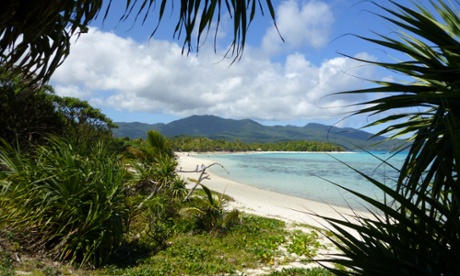Tiny piece of ancient Australia found beneath Vanuatu
The discovery of a fragment of crust, carried up in magma in Vanuatu, raises new questions about how continents are formed
Australian Associated Press
theguardian.com, Monday 27 October 2014 19.16 AEST

A tiny piece of ancient Australia has been found under Vanuatu, raising new questions about how continents are made.
Geologists thought the volcanic Vanuatu islands, about 2,200km east of Townsville, were isolated from continental influences.
But a research team from James Cook University believes Vanuatu’s geological basement contains ancient material from northern Australia.
They discovered volcanic rocks from Vanuatu contained tiny crystals of zircon, carried up in magma from the depths by the volcanic plumbing systems.
Using radiometric dating techniques, the crystals were dated at up to three billion years old.
The range of ages of the zircon crystals closely matches the age of the rocks that make up northern Australia.
Carl Spandler, one of the study’s authors, says the the zircon “shouldn’t be there” and its presence has major implications for how scientists understand continents are made.
“There is nothing else like it in the south-west Pacific,” Spandler said in a statement.
“Just because island chains or land masses may be far removed from each other today, doesn’t mean that they always were. This calls for a rethink of how we calculate the rates and processes of generating new crust on Earth,” he said.
The fragment of Australian crust now under Vanuatu is thought to have separated from the mainland prior to the Cenozoic era, around 100m years ago.





